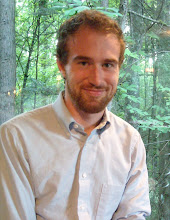Ricoeur on Forgiveness (Part 2)
In the previous post, we were left with the dilemma that Ricoeur poses us: If forgiveness is essentially the unbinding of the action from the agent, then forgiveness disintegrates our sense of self rather than restores it. Further, how can I be responsible and accountable for my actions, how can I be an ethical self, if I my actions have been flung from my being, and I have no reference to them?
Ricoeur's response comes by way of calling attention to a philosophy of the self, which in his later work he calls a "phenomenology of the capable man or l'homme capable." This phenomenology attempts to
"recover the hidden truth of our operative acts - of being capable." In other words, Ricoeur claims that the unity between the agent and her actions is to be found in the notion of capability. Ricoeur draws upon various philosophical sources to emphasize that at the heart of the human are notions of potentiality, the basic power of the agent to act and suffer. Indeed, he is drawn to describing the ontology of the human as "Being-as-the-power-of-the-possible."
In order to link all this up with forgiveness, Ricoeur connects the notions of being as potentiality with Kant's philosophical anthropology found in his Religion within the Boundaries of Mere Reason. Ricoeur here draws upon Kant's distinction between the "propensity to evil" and the "predisposition to good." While humans have a radical propensity to evil actions, this is not the most original feature of human existence. We have a predisposition to the good that is deeper within our nature than moral evil. The conjunction of these two considerations thus claims that we have the capacity to commit both good and evil action, but our capacity for the good runs deeper than our capacity for evil.
Ricoeur notes that this is one of the most important features of the narratives in Genesis 1-3, that although humanity has fallen into radical evil, this evil is not our origin. Our truly original nature is found in the capacity for good.
Venema explains the relation to forgiveness in this way:
Ricoeur puts it this way:
Ricoeur's response comes by way of calling attention to a philosophy of the self, which in his later work he calls a "phenomenology of the capable man or l'homme capable." This phenomenology attempts to
"recover the hidden truth of our operative acts - of being capable." In other words, Ricoeur claims that the unity between the agent and her actions is to be found in the notion of capability. Ricoeur draws upon various philosophical sources to emphasize that at the heart of the human are notions of potentiality, the basic power of the agent to act and suffer. Indeed, he is drawn to describing the ontology of the human as "Being-as-the-power-of-the-possible."
In order to link all this up with forgiveness, Ricoeur connects the notions of being as potentiality with Kant's philosophical anthropology found in his Religion within the Boundaries of Mere Reason. Ricoeur here draws upon Kant's distinction between the "propensity to evil" and the "predisposition to good." While humans have a radical propensity to evil actions, this is not the most original feature of human existence. We have a predisposition to the good that is deeper within our nature than moral evil. The conjunction of these two considerations thus claims that we have the capacity to commit both good and evil action, but our capacity for the good runs deeper than our capacity for evil.
Ricoeur notes that this is one of the most important features of the narratives in Genesis 1-3, that although humanity has fallen into radical evil, this evil is not our origin. Our truly original nature is found in the capacity for good.
Venema explains the relation to forgiveness in this way:
"Regardless of how radical evil may be, Ricoeur claims that good conscience is never rendered completely incapable of genuinely responding to the demand of forgiveness. While action and agent are always coupled together, evil action can be unbound from the heart of selfhood because the heart is never completely incapable of beginning again" (pp. 70-71).When forgiveness in this way recognizes the agent as always capable of reorienting his path toward the good, it can unbind the evil action from the agent while at the same time affirming the underlying core of the self in its power for the good.
Ricoeur puts it this way:
Under the sign of forgiveness, the guilty person is to be considered capable of something other than his offenses and his faults. He is held to be restored to his capacity for acting, and action restored to its capacity for continuing... And, finally, this restored capacity is enlisted by promising as it projects action toward the future. The formula for this liberating word, reduced to the bareness of its utterance, would be: you are better than your actions.I believe that Ricoeur's thought here has some interesting implications, and next time I'll wrap things up by mentioning a couple of them.



1 Comments:
thanks for reading. It's good to know that I'm not the only one to have read my essays :)
Henry Venema
Post a Comment
Subscribe to Post Comments [Atom]
<< Home